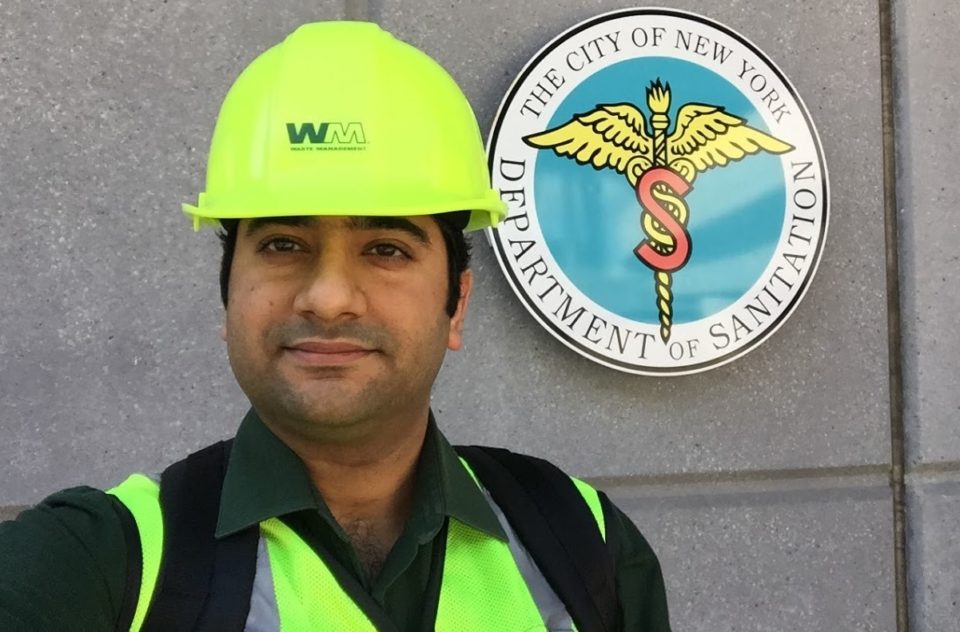BY JYOTHSNA HEGDE
Atlanta, GA, June 9, 2020: Houston, Texas-based Ashish Sharma, Senior Manager, Digital, Waste Management, was among winners of the fifth annual 2020 Waste360 40 Under 40 awards program. The program honors the next generation of leaders shaping the future of waste and recycling industry. Over the past five years, the program has recognized inspiring and innovative professionals under the age of 40 whose work in waste, recycling and organics has made a significant contribution to the industry. The winners are involved in every part of the waste and recycling industry, including haulers, municipalities, composters, recycling professionals, policymakers and product suppliers.
“This Global Award is an ‘Oscar’ of the Environmental Services industry, rhetorically speaking. Waste360 is a global guild for our industry, headquartered in London, operating worldwide. I am humbled and grateful to be the recipient of this prestigious Industry award,” says Sharma about his recognition.
Ashish Sharma, in his role as senior manager of digital at Waste Management (WM) serves to keep the company stay on the cutting edge while adapting to changing and growing demands.
“His successful completion of several mission-critical projects including predictive maintenance, digitizing daily vehicle inspection report, telematics, technician digital transformation and many others reinforce my confidence in his abilities to positively impact our industry. His demonstrated expertise and thirst for knowledge in emerging technologies will benefit our industry long into the future,” says Anthony Barna, senior district manager for Waste Management.
Sharma leads technology/digital teams and solutions in asset management areas. His contributions as a digital lead for innovative projects including a $3.3 billion contract, New York’s marine transfer stations, whereby large volumes of containerized waste are tracked throughout their lifecycle provided sophisticated technology roadmap, won him the 40 under 40 awards.
“It was a challenging new area where containerized waste was expected to be tracked from these transfer stations to the destinations, throughout their lifecycle. Full implementation of this project will cut greenhouse gas emissions associated with waste transport by more than 34,000 tons annually, and this project is one of the steps toward the city’s long-term commitment to zero waste,” says Sharma about the project that won him the award.
So, what was the project all about? WM accepts sealed waste containers from the Department of Sanitation at the Hamilton Avenue and Southwest Brooklyn marine transfer stations. Cranes load the containers onto barges, which are transported to a Waste Management-owned facility in Elizabeth, N.J. From there, containers are transported to a rail yard, where they are loaded onto rail cars for transport to their final destinations.
A technology-intensive project, it involved tracking the containers as they cycle between the source and destination and back. A few pilots later, the team picked radio-frequency identification to track the containers and cloud solution to meet the city’s reporting requirements to be the most optimal design. Working with all stakeholders, they integrated the digital solution with vendors and the crane provider for increased efficiency and automation.
Sharma has also created financial, accounting and sales applications that integrate with key customers to support them in meeting their bottom lines. He is a member of the Solid Waste Association of North America, the Academy of Management and the Software & Innovation Industry Association, among other professional groups. He judges several technology awards and volunteers his time to review technology research papers and software products prior to launch to help companies maximize returns.
Technology advancements for safety and the use of technology to ensure employee safety and wellbeing are areas Sharma is keen in pursuing. He notes that predictive analytics, machine learning and artificial intelligence are playing key roles in shaping solutions to the most complex business problems.
Separation
of contaminants out of the single stream recycling process where robot arms,
using artificial intelligence, helping reduce the contamination in
recyclables is one of examples of technology shaping the management industry,
says Sharma.
Sharma
believes that the role of technology will be significant in closing gaps on the
circular economy. How? Every industry output to a waste stream and Sharma says
technology can come into play to avoid landfilling and put those output waste
streams back into the manufacturing process or, in some cases, to reduce
output waste streams to zero. “A circular economy
is our biggest opportunity to ensure a sustainable and zero waste future, which
cannot happen without technology.”
Sharma volunteers for organizations such as Loaves & Fishes, Project Joy & Hope and community initiatives working toward women empowerment, persons of diverse background and underprivileged to realize their highest potential through coaching, mentorship and motivation.
“I grew up in India and come from very humble beginnings, and because of this, the quality of living and equality has always been very close to my heart,” says Punjab native Sharma who has lived in the US since 2011 having worked for IBM, and mission-critical large transformational projects for clients including NetApp, AT&T, J&J, Juniper Networks, US Oncology, Agilent Technologies, Vodafone(Greece) and Hafslund(Norway).





